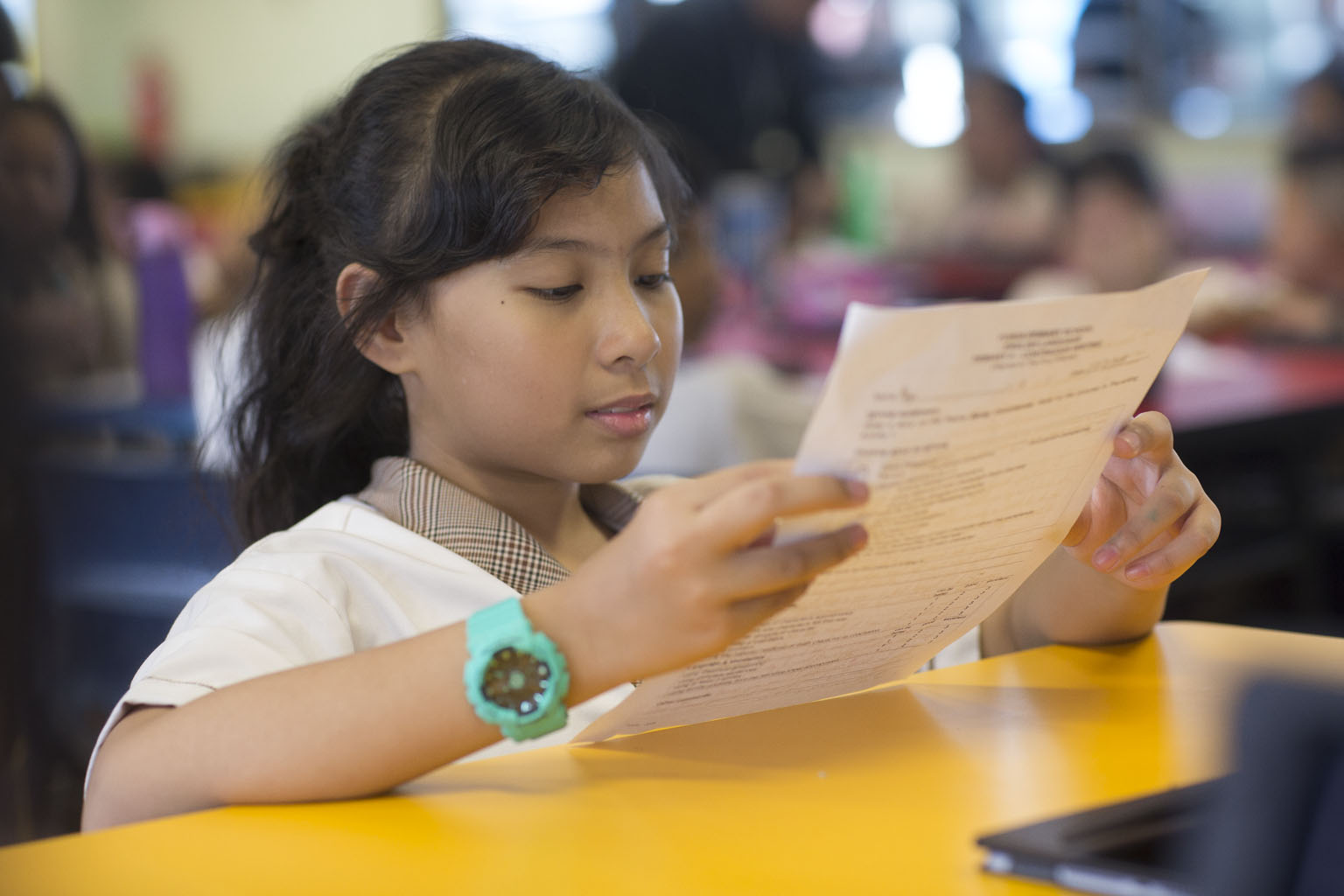I was with some friends at a social function last month when one of them asked: “Don’t you have to be home tonight to practise with your son?”
It was the eve of the Primary School Leaving Examination’s (PSLE) oral component. For a moment, I felt a stab of guilt. Should I have stayed home? The thought hadn’t occurred to me.
In the months leading up to the main written papers of the PSLE, which will be held from Sept 26 to Oct 2, I’ve often been asked: “How? Stressed or not?”
I’m always tempted to say: “I’m not the one taking the exam.” But who am I kidding?
To stress or not to stress
The PSLE hangs over all Primary 6 students like the sword of Damocles, and parents have come to share the pressure, if not bear the brunt of it.
So, my answer to the above question lies somewhere between “yes” and “no”.
There is a niggling worry that my son, who is not a straight-A student, might flounder in the exam and suffer a confidence crisis. So, yes, there is some degree of anxiety. But this is an occasional idle thought rather than an all-consuming fear, the sort of “what if” concern that evokes suspense rather than stress.
Ironically, what feed my anxieties are well-meaning tips on managing PSLE stress that some experts dish out online. Often, they prescribe a parental approach that is far more hands-on than what I deem necessary.
For instance, one urged parents to create a timetable in advance as well as a daily to-do list, and encouraged them to monitor the completion of each task.
The idea was that keeping track of your child’s progress cuts out the stress of uncertainty and last-minute mugging.
I got the rationale. But who would have the time and energy to do this, I wondered.
While I enjoy a flexible arrangement that allows me to work from home, checking off my son’s revision milestone one by one is not on my agenda. Surely that is his responsibility. Or is it?
After all, I know of friends who pull long shifts at work and then devote their nights or weekends to intensive prep work with their P6 kids.
I am both amazed and alarmed at their dedication.
“Maybe I’m stressed about not being stressed enough,” I told my husband at one point. “I keep wondering if I should be doing more.”
I found my answer the night I was out, just before the PSLE oral exam.
What’s my role
My son called me at 10pm, an hour past his bedtime. “When are you coming back? I can’t sleep,” he said.
It had been at least a year since my pre-teen last made such a call and expressed such a need for my company.
Recalling my friend’s query, I asked: “Are you worried about tomorrow?”
It wasn’t my tutoring service that my son needed though. He was facing the first major exam of his life and simply wanted some assurance.
Somehow, he was convinced that the testers awaiting him the next day were menacing strangers who were out to thwart him.
I told him they were just teachers from other schools who knew how nervous the students would be and were trained to help them along if they got stuck.
I was right, of course, and my son approached Day 2 of the oral exam with more confidence.
It dawned on me that what is required of me is no different from what we expect of our son: Doing the best in what we can.
He can get help with his work from his teachers and tutors. But only my husband and I can give him the love and support he needs to thrive, come what may.
Just as I have my limitations, he has his. We just have to work with what we have, set
realistic targets and mark the little triumphs along the way.
We don’t expect him to ace maths and science, which have always been his Achilles heel. But he knows he has to put in the necessary work and give it his best shot.
Similarly, I don’t know enough to coach him in maths and science. But I trawl the web for useful resources and check in with his tutors once in a while.
When his science tutor flagged that he was spending too much time on the multiple-choice questions, for instance, I printed out past years’ papers available online and worked with him to bump up his speed for that section.
I did my part, he did his. And we celebrated with a KFC meal when he fared better than expected in his science preliminary exam.
Make peace with the options
My biggest wish for my son is not that he scores straight As, but that he can look back on this milestone year with neither scars nor regrets, knowing that he had given it his all.
As we head into the home stretch of PSLE season, we have narrowed down his school choices. This helps to take some pressure off him and allows us to manage our expectations.
If he does well, we will aim for a popular mission school in town. If not, we will be just as happy to enrol him in a school nearby with less stringent requirements but which shares the same Catholic ethos.
By hoping for the best and preparing for the worst, we are primed to accept whatever lies ahead.
Weathering the worst possible outcome is a learning journey in itself. And it is this very process that can bring out the best in a person.
May I always have the grace to remember and embrace this.
Tee Hun Ching, a mother of two, is a copy editor and freelance journalist who was previously an editor with The Straits Times.




.jpg)

